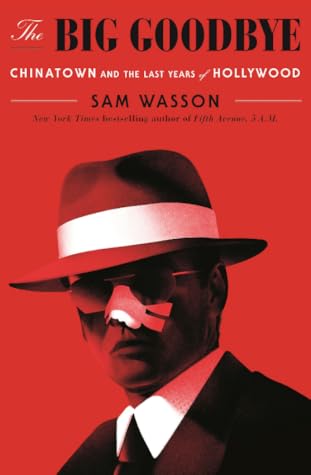More on this book
Community
Kindle Notes & Highlights
by
Sam Wasson
Read between
May 12 - July 8, 2022
“Well, that’s pretty much what we’re told to do in Chinatown, is nothing. Because with the different tongs, the language and everything else, we can’t tell whether we’re helping somebody commit a crime or prevent one. So, we just … we do nothing.”
And it is a kind of novel that seems to arise from, and to be especially suited to, the place called Los Angeles,” where haste is always a question of life or death, and contemplation, or any consideration of the past, is intolerable.
For, as Chandler wrote near the end of his Hollywood career, “I am a writer and there comes a time when that which I write has to belong to me.… It doesn’t have to be great writing, it doesn’t even have to be terribly good. It just has to be mine.”
He remembered feeling part of a community—a group of people with shared values—and that sense of moral unity—“the notion that some things are not for buying and selling”—that seemed to have left America after World War II. Or was it after the Kennedy assassination? Or the murder of Sharon Tate?
Distraction—this was how it always started. “So much of writing,” he said, “is trying to avoid facing it.”
“You’re a terrific .400 hitter, which means that I think you’re right less than half the time.”
Riding the elevator with his father, Evans could tell that the old man, mysteriously ashamed, felt a sorrow older than the coming war. Archie, his head low, whispered a lesson his son would never forget: “The wealthy will get wealthier and the young will die.”
It was the Santa Anas, Raymond Chandler had written, that made “meek little wives feel the edge of the carving knife and study their husband’s necks.”
“Deep down,” she said, “I’m always running hard because I’m running scared. The children of the poor, the children of the divorced are not the most secure people in the world.”
Chinatown is a condition. The condition is the terrible awareness of one’s helplessness, what Towne had always called “the futility of good intentions.”
What makes Chinatown so uniquely disturbing as an American metaphor is that it is so unlike the whiteness of Ahab’s whale or the greenness of Gatsby’s light. However illusory, these are totems of aspiration, of possibility. Futility and fate, by contrast, are concepts that defy the capitalist’s dream of agency and advancement, the (graying) Protestant work ethic that assured pre-Watergate Americans that life was linear, not cyclical, and the game wasn’t rigged against them.
“Our country is becoming corrupted little by little by conglomeration and conglomerative thinking,” he said in 1986. “And, baby, you or I ain’t going to change it.”
Nostalgia blurs the edges of empires, and yet it did happen, didn’t it? The movies are the proof. They were made. People made them.


